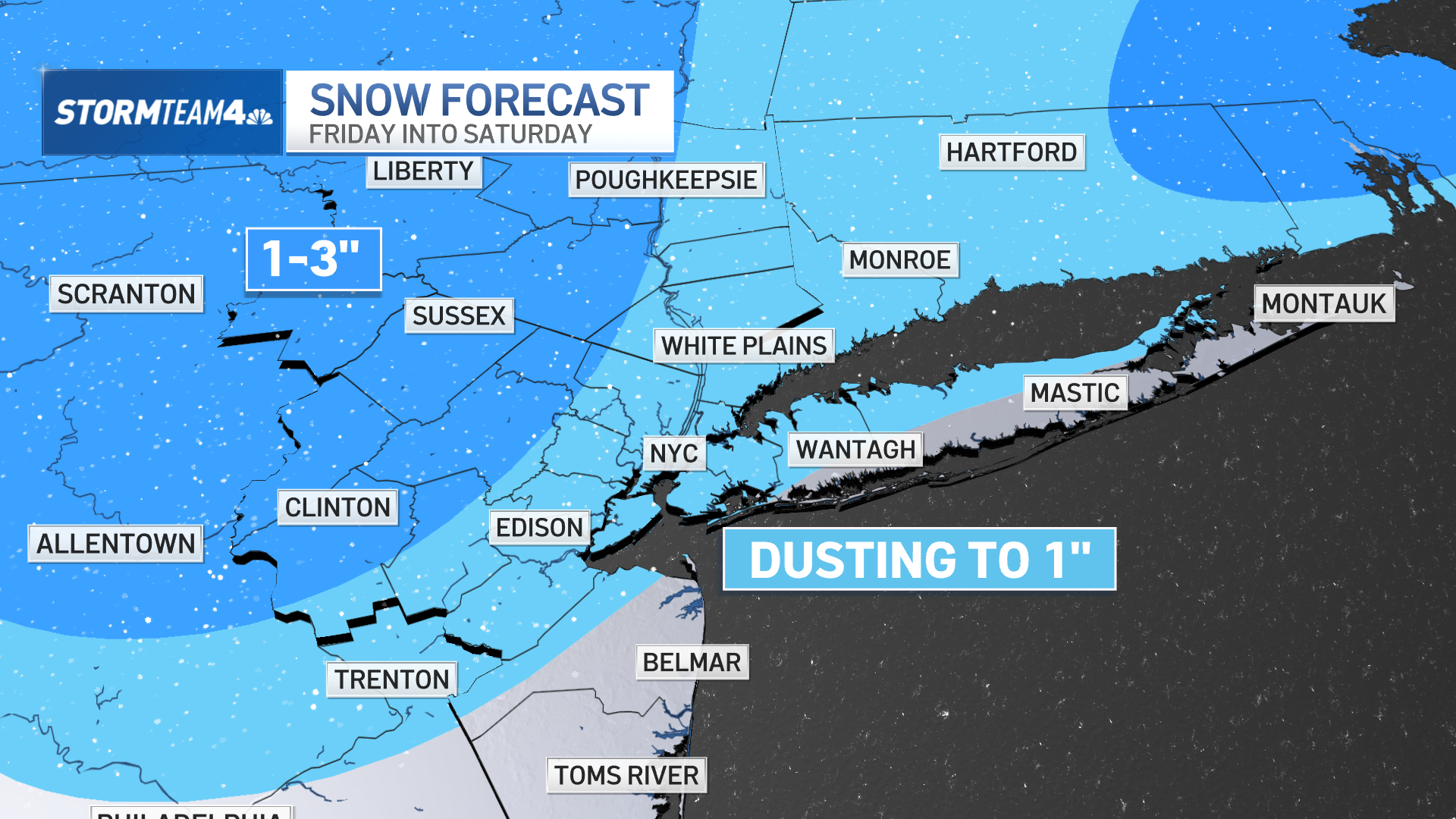What to Know
- As another wave of the unprecedented COVID-19 pandemic rears its ugly head, there is light at the end of the tunnel as vaccines will soon begin to become available.
- However, a new poll revealed that although the majority of New Jerseyans are willing to take an FDA-approved vaccine, a large number is hesitant to do so -- all while communities of color continue to experience the worst economic fallout from the ongoing health crisis.
- Although they've experienced greater economic fallout, communities of color are less likely to agree to take the COVID vaccine, study shows.
As another wave of the unprecedented COVID-19 pandemic rears its ugly head, there is light at the end of the tunnel as vaccines will soon begin to become available. However, a new poll revealed that although the majority of New Jerseyans are willing to take an FDA-approved vaccine, a large number is hesitant to do so -- all while communities of color continue to experience the worst economic fallout from the ongoing health crisis.
The poll of 958 New Jersey voters was conducted by Change Research and commissioned by Newark-based non-profit Project Ready found that the majority of voters surveyed (60%) would agree to be vaccinated if an FDA-approved coronavirus vaccine was available at no costs, but concerns about the vaccine remain prevalent.
The survey found that Democrats are the most likely to take the vaccine (80%) compared to Independents (47%) or Republicans (40%), with the latter attributing their vaccine concerns to not trusting vaccines overall, wanting to confirm the vaccine's safety, concern over the rushed timeline and wanting to see its effectiveness. Meanwhile, Democrats are most concerned about safety
and a rushed timeline.
However, while Democrats are more likely to agree to get vaccinated, a racial and ethnic gap exists, the study found. Non-white Democrats (36%) are more than three times as likely as white Democrats to say they would not agree to get vaccinated. The study also revealed that those 65+ years old are the most likely to agree to get vaccinated than those who are 35 to 49 years old.
Communities of color are also less likely to agree to take a vaccine. The survey found that 37% of white, 39% of Black, and 45% of Hispanic voters say they would not agree to be vaccinated.
"When it comes to a COVID-19 vaccine, data suggests that a public information campaign and focused outreach to communities of color will be necessary and important," the study said.
Additionally, the survey found that communities of color have experienced the worst of the pandemic in terms of the economic fallout.
The coronavirus has deeply impacted voters’ finances, particularly African-American and Hispanic voters, according to the study. Although a majority (61%) of New Jerseyans have said they've experienced some or a lot of financial impact due to the pandemic, with a total of 73% of African American voters and 70% of Hispanic voters saying they've experienced the economic fallout compared to 57% of white voters. This impact is also seen across political party affiliations with 60% of Democrats, 64% of Independents and 62% of Republicans saying they have had a lot or some financial impact. Younger (18 to 49-years-old) non-white voters report the highest economic impact (83%) while older (65+) white voters indicate the lowest financial impact, with 55% saying they were not impacted.
Additionally, a majority (54%) of voters report that they or someone in their household has had their working hours reduced during the ongoing pandemic. Half of African Americans in New Jersey have said that someone in their household has lost a job during the pandemic, followed by Hispanic (39%) households and then white households (28%), the study revealed.
“Despite the devastating and disproportionate impacts of the pandemic on communities of color, they’re also the least likely to say they will agree to be vaccinated,” said Shennell McCloud, Executive Director of Project Ready. “Our leaders must take notice that there aren’t just partisan differences driving these reactions and commit to dedicating the resources to educate our neighbors regarding vaccines.”
News
The study also found that while the majority of voters (52%) give positive ratings for the state’s handling of the pandemic, nearly two-thirds (64%) of those surveyed believe things with coronavirus are getting worse. Because of this, 42% overall believe the state should either rollout more restrictions to mitigate the virus or keep the current restrictions in place (20%). Meanwhile, 38% of those surveyed want to reduce restrictions.
The survey found that the topic of restrictions sharply divides Democrats and Republicans in the state, with 79% of Republicans wanting to loosen up restrictions compared to just 4% of Democrats. Meanwhile, 55% of Independents also support the current state of restrictions or the expansion of them.
For the full study and information on the methodology used, click here.



